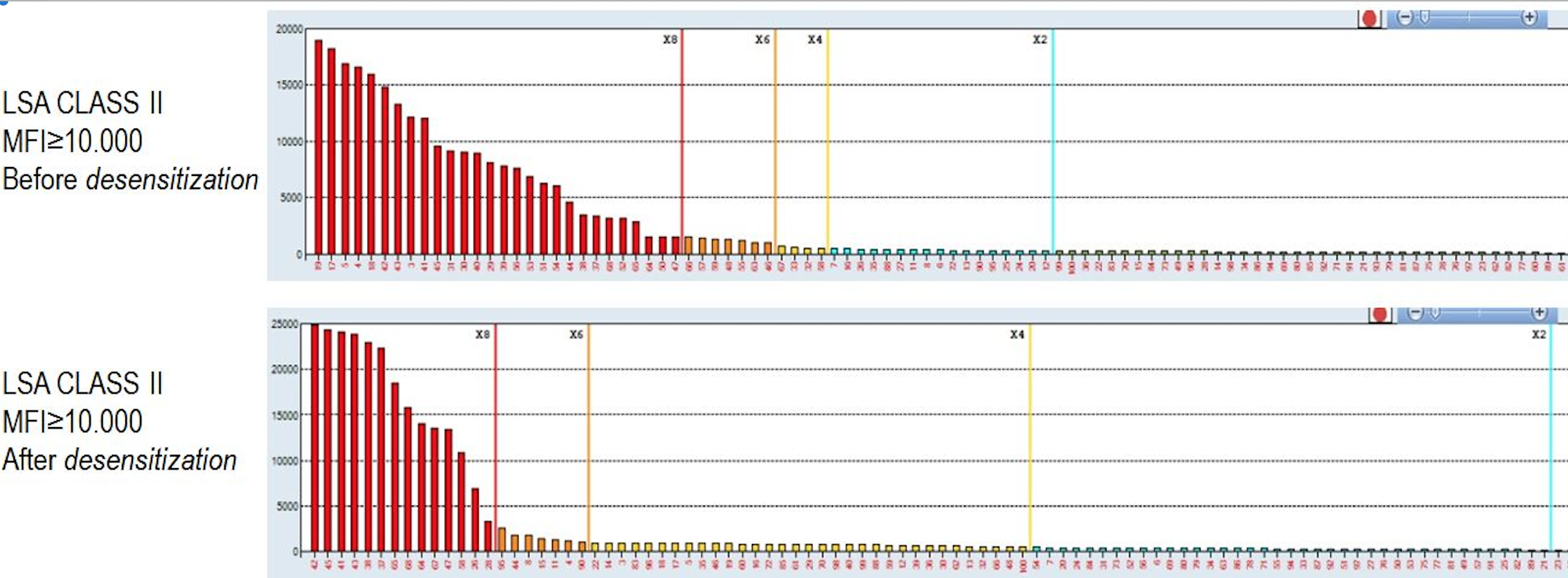A study in heart transplant patients: Especially class-II anti-HLA antibodies may remain persistent
Bilkay Basturk1,2, Miray Kavuzlu1, Begum Yavascaoglu Uney3, Atilla Sezgin4, Mehmet A. Haberal5.
1Tissue Typing and Transplantation Immunology Laboratory, Baskent University, Ankara, Turkey; 2Department of Immunology, Baskent University, Ankara, Turkey; 3Department of Medical Biology, Baskent University, Ankara, Turkey; 4Department of Cardiovascular Surgery , Baskent University, Ankara, Turkey; 5Department of General Surgery, Division of Transplantation, Baskent University, Ankara, Turkey
Introduction: In heart transplants, it is important that the donor source is limited and the donated organ is transplanted to the most appropriate recipient. During the evaluation of recipients, knowledge of anti-HLA antibodies (class-I, class-II) and transplantation preparation is a priority in planning pre- and post-transplantation treatment and determining the risks.
The aim of the study is to investigate the response of anti-HLA antibodies, which are known to be clinically compatible, to desensitization treatment.
Method: In our centre, 15 of a total of 153 heart transplant patients received desensitisation treatment with the diagnosis of antiboy mediated rejection. A total of 60 samples of 15 the patients evaluated in the study were followed in our center for at least four years and patients before and after desensitisation (plasmaferesis, IVIG and Rituximab) were evaluated. Pre-transplant, post-transplant anti-HLA antibodies tests were performed in the Tissue Typing and Transplantation Laboratory of Başkent University Adana Dr. Turgut Noyan Research and Medical Center. Serum samples of the patients were tested for PRA Screening Class I and II (One Lambda, Inc., Canoga Park, CA, USA) test by Luminex method. Single Antigen(LSA) Class I and/or II (One Lambda, Inc., Canoga Park, CA, USA) by Luminex method. MFI≥1500 were considered positive. In order to determine the presence of donor-specific antibodies, the HLA tissue group sample of the donor was studied by high-resolution method (SBT/NGS).
Results: The presence of anti-HLA antibodies before transplantation was found to be approximately 4% in patients who applied to our centre for transplantation. Among the patient group included in the evaluation, anti-HLA Ab (MFI>10.000) was detected before transplantation in 2 recipient candidates, one of whom was class-I and the other was class-II. These patients received desensitisation therapy in the pre-transplant period. In the desensitisation treatments performed due to the development of de-nova antibodies before or after transplantation, it was found that class- II anti-HLA antibodies, especially the HLA-DQ group, were more resistant to treatment. It was determined that antibodies with MFI values of 10.000 and above did not decrease at the expected level after desensitisation, increased in some patients, but those with MFI < 10.000 decreased. In patients who received 2nd desensitisation treatments, a time-dependent (approximately in 2 years) decrease in resistant antibodies was observed.
Conclusion: Considering that resisitant ani-tHLA-antibodies may decrease over time, especially after the second desensitization, monitoring them is important for planing the treatment.

